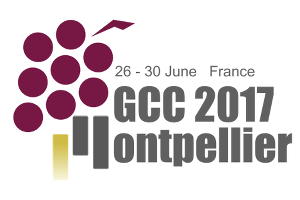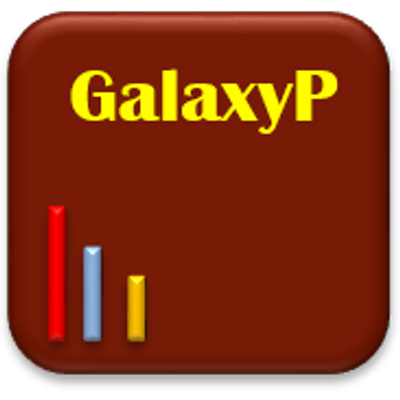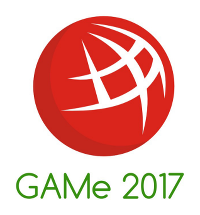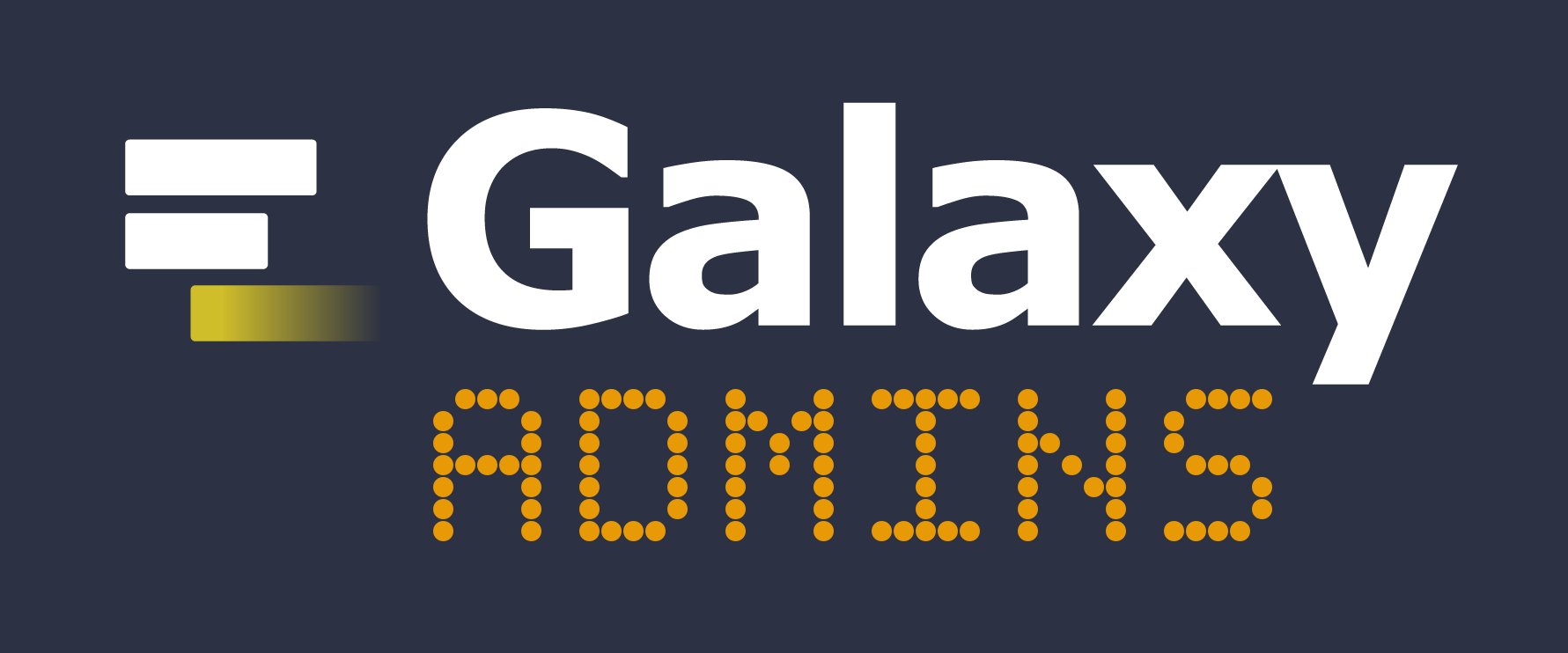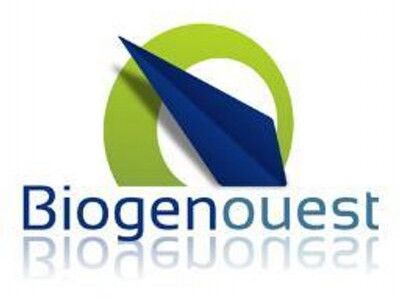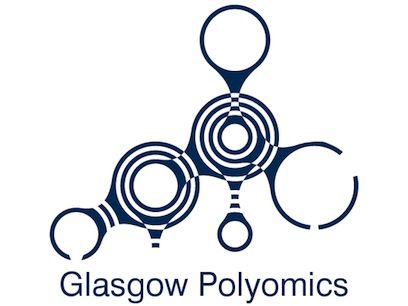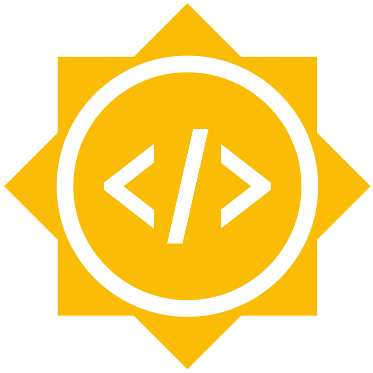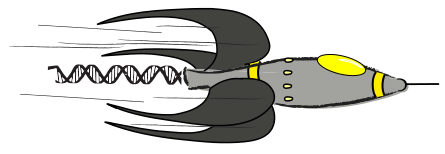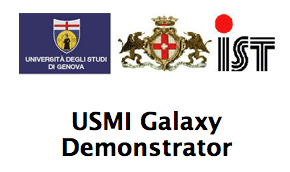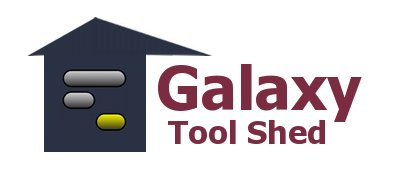March 2017 Galaxy News
Welcome to the March 2017 Galactic News, a summary of what is going on in the Galaxy community. After 5 years of monthly newsletters, we took a newsletter hiatus last month, but now we are back, and ready to report on our continuing mission to explore the Galaxy.
Thanks for sticking with us.
Events
As always there are a wealth of events coming up. Here are some highlights:
2017 Galaxy Community Conference
Registration & abstract submission are open
We are pleased to announce that early registration and abstract submission for the 2017 Galaxy Community Conference (GCC2017) are now open.
GCC2017 will be in Montpellier, France, 26-30 June and will feature two days of presentations, discussions, poster sessions, lightning talks, computer demos, keynotes, and birds-of-a-feather meetups, all about data-intensive biology and the tools and infrastructure that support it. GCC2017 also includes data and coding hacks, and two days of training covering 16 different topics.
GCC2017 will be held at Le Corum Conference Centre in the heart of Montpellier, just 10km from the Mediterranean. This event will gather several hundred researchers addressing diverse questions and facing common challenges in data intensive life science research. GCC participants work across the tree of life, come from around the world, and work at universities, research organizations, industry, medical schools and research hospitals.
Early registration is also open and starts at less than 55€ / day for post-docs and students. You can also book low cost conference housing when you register.
GCC2017 Travel Fellowships
GCC2017 is a great opportunity to discuss your research with others that are working in and facing similar challenges in data-intenisve life science research. But only if you can get there.
The Galaxy Community Fund is offering fellowships to early career researchers that would be coming from afar to attend GCC2017.
Fellowships include
- full registration for any GCC2017 events you attend
- lodging in conference housing for the duration of those events
- The first US$750 of travel costs.
If you are
- an early career researcher (student, post-doc, junior staff or faculty),
- and are based outside of Europe,
- and attending GCC2017 will help your research, your career, and your communities then you are strongly encouraged to apply.
Fellowship applications will be selected based on multiple criteria including
- Your research! And ...
- How well you can describe it in a poster, demo or lightning talk abstract
- How much impact attending will have on you and your current and future communities, especially historically underrepresented communities and research and education in developing countries.
See the application for full details on what's covered and what we ask you to provide.
We'll review applications in two rounds, one starting on March 20, and the other on April 5, 2017. Interested? Submit an abstract and apply for a fellowship. If you have visa concerns, you are encouraged to submit and apply by March 20.
We hope to see you at GCC2017!
Galaxy Community Fund Board
Cycle "Bioinformatique par la pratique" 2017
The Plateform de BioInformatique - INRA Jouy en Josas is offering several Galaxy workshops in its "Bioinformatics by practice" training cyle this month. The sessions are composed of a theoretical part and practical exercises. They are given on the campus of the INRA center in Jouy-en-Josas. Workshops are in French and are open to anyone.
Metaproteomics of microbiomes at ABRF 2017
Learn how Galaxy can be used for proteomic data analysis, and also applications that cross the ‘omic domains.
"With a focus on metaproteomics for characterizing microbiomes, we will help participants learn how to utilize tools for mass spectrometry-based proteomics in Galaxy. Metaproteomics is a multi-omic approach, which characterizes proteins expressed by microorganism communities (microbiomes). Participants will also learn how to leverage metagenomics data to generate protein sequence databases used for proteomic analysis, and utilize the protein information to gain better functional understanding of microbiomes. In addition to receiving hands-on instruction on the use of the Galaxy platform and its implementation, participants will gain experience with the latest software tools and workflows for proteomic and metaproteomic data analysis developed via worldwide collaborative efforts."
See the full workshop description for more. There is still space avaialable.
Galaxy Australasia Meeting (GAMe 2017) Report
"The Galaxy Australasia Meeting 2017 (GAMe 2017) was Galaxy Australia’s first major activity. Bringing together current and future Galaxy users and administrators from nine different countries, the meeting had a fantastic community feeling and resulted in many ideas for carrying plans forward in our region."
GAMe 2017 was held 3-9 February, at the EMBL-ABR Hub at the University of Melbourne.
See the full report for more.
GalaxyAdmins February Meetup Screencast
A video of the February 16 GalaxyAdmins Meetup is now available. Nuwan Goonesekera and Enis Afgan presented an all-new version of CloudLaunch, an application for launching Galaxy on the Cloud instances. The new CloudLaunch allows multiple flavors of Galaxy to be deployed, Docker images or applications other than Galaxy. Each application can have its own custom user interface developed to accommodate the specific application needs.
All upcoming events
There are a plenitude of Galaxy related events coming up in the next few months:
| Date | Topic/Event | Venue/Location | Contact |
|---|---|---|---|
| March 13 | Initiation à l’utilisation de Galaxy | |
Sandra Dérozier, Véronique Martin |
| March 14 | Analyse primaire de données issues de séquenceurs nouvelle génération sous Galaxy | |
Valentin Loux, Véronique Martin |
| March 15 | Traitement bioinformatique des donnéesRNA-Seq sous Galaxy | |
Valentin Loux, Cyprien Guérin |
| March 16-17 | Analyse statistique de données RNA-Seq - Recherche des régions d'intérêt différentiellement exprimées (R, RStudio et Galaxy) | |
Christelle Hennequet-Antier, Julie Aubert |
| March 25-28 | The Galaxy platform for metaproteomic characterization of microbiomes | |
 Tim Griffin, Pratik Jagtap, James Johnson Tim Griffin, Pratik Jagtap, James Johnson |
| March 27-30 | Analyse de données métagénomiques 16S | |
Mahendra Mariadassou, Anne-Laure Abraham, Olivier Rué, Sandra Dérozier |
| April 7 | Traitement de données de séquences par Galaxy | |
Contact |
| April 19-21 | NGS & Cancer : Analyses DNA-Seq | |
Instructors |
| May 15-16 | Data Analysis Workshop | |
Julian Augley, Graham Hamilton, David Meltzer and Mani Mudaliar |
| May 29 - June 2 | Workflow4Experimenters International Course |
|
 Christophe Caron Christophe Caron |
| May 29 - June 2 | Bioinformatics for Cancer Genomics | |
Instructors |
| June 4-8 | Metaproteomics For The Future: Democratizing functional analysis of microbiomes via community-based informatics development and dissemination | |
Pratik Jagtap |
| June 26-30 | 2017 Galaxy Community Conference (GCC2017) | |
 Organisers Organisers |
See the Galaxy Events Google Calendar for details on other events of interest to the community.
Galaxy in Google Summer of Code 2017
The Open Genome Informatics Consortium was selected for the 2017 Google Summer of Code. Galaxy is one of several projects in the consortium and there are project ideas from all of them. Take a look. If you are interested, applications open March 20.
Galaxy Community Hub Update
The transformation from our old MoinMoin based wiki to a GitHub based site refered to as the Hub will finish in early March.
We still need your help to finish the move.
The Hub uses GitHub Flavored Markdown for markup, and Metalsmith for web site rendering and for semi-structured content (such as the Events page). The new platform offers the strength of our old wiki (easy contribution) with a markup language many more people know, easy programmatic access, and all the strengths of GitHub.
Content was automatically converted from MoinMoin and Creole markup to Markdown, and many other things were also cleaned up in the process. However, the automatic translation stumbled in some places and the cleanup and general restructuring are far from done. We also aren't yet taking advantage of Metalsmith to render semi-structured content and page metadata.
We are using GitHub issues and a Matrix channel to coordinate work.
New Publications
199 new publications referencing, using, extending, and implementing Galaxy were added to the Galaxy CiteULike Group in January and February. There are now over 4000 papers in the Galaxy CiteUlike library.
Some highlights from the past two months:
- GraphFlow: Workflow-based big graph processing S. Riazi, B. Norris. In 2016 IEEE International Conference on Big Data (Big Data) (Dec 2016), pp. 3336-3343, doi:10.1109/BigData.2016.7840993
- blend4php: a PHP API for galaxy Connor Wytko, Brian Soto, Stephen P. Ficklin. Database, Vol. 2017 (10 January 2017), baw154, doi:10.1093/database/baw154
- A guide and best practices for R/Bioconductor tool integration in Galaxy Nitesh Turaga, Mallory A. Freeberg, Dannon Baker, John Chilton, Anton Nekrutenko, James Taylor. F1000Research, Vol. 5 (24 November 2016), 2757, doi:10.12688/f1000research.9821.1
- MetaDP: a comprehensive web server for disease prediction of 16S rRNA metagenomic datasets Xilin Xu, Aiping Wu, Xinlei Zhang, Mingming Su, Taijiao Jiang, Zhe-Ming Yuan. Biophysics Reports (2017), pp. 1-10, doi:10.1007/s41048-016-0033-4
- A complete workflow for high-resolution spectral-stitching nanoelectrospray direct-infusion mass-spectrometry-based metabolomics and lipidomics Andrew D. Southam, Ralf J. M. Weber, Jasper Engel, Martin R. Jones, Mark R. Viant. Nature Protocols, Vol. 12, No. 2. (12 January 2017), pp. 255-273, doi:10.1038/nprot.2016.156
- Computational tools and workflows in metabolomics: An international survey highlights the opportunity for harmonisation through Galaxy Ralf J. M. Weber, Thomas N. Lawson, Reza M. Salek, Timothy M. D. Ebbels, Robert C. Glen, Royston Goodacre, Julian L. Griffin, Kenneth Haug, Albert Koulman, Pablo Moreno, Markus Ralser, Christoph Steinbeck, Warwick B. Dunn, Mark R. Viant. Metabolomics, Vol. 13, No. 2. (2016), pp. 1-5, doi:10.1007/s11306-016-1147-x
- Variant profiling of evolving prokaryotic populations Markus Zojer, Lisa N. Schuster, Frederik Schulz, Alexander Pfundner, Matthias Horn, Thomas Rattei. PeerJ, Vol. 5 (16 February 2017), e2997, doi:10.7717/peerj.2997
- USMI Galaxy Demonstrator (UGD): a collection of tools to integrate microorganisms information Daniele P. Colobraro, Paolo Romano. PeerJ Preprints (31 January 2017), doi:10.7287/peerj.preprints.2766v1
-
Three papers on natural language processing:
- Supporting accessibility and reproducibility in language research in the Alveo virtual laboratory Steve Cassidy, Dominique Estival. Computer Speech & Language (February 2017), doi:10.1016/j.csl.2017.01.003
- LAPPS/Galaxy: Current State and Next Steps
Nancy Ide, Keith Suderman, Eric Nyberg, James Pustejovsky, Marc Verhagen. In Proceedings of the Third International Workshop on Worldwide Language Service Infrastructure and Second Workshop on Open Infrastructures and Analysis Frameworks for Human Language Technologies (WLSI/OIAF4HLT2016) (December 2016), pp. 11-18 - Demonstration: The Language Application Grid as a Platform for Digital Humanities Research Nancy Ide, Keith Suderman, James Pustejovsky, In CDH@TLT (2017)
Publication Topics
| # | Tag | # | Tag | # | Tag | # | Tag | |||
|---|---|---|---|---|---|---|---|---|---|---|
| 112 | methods | 46 | usepublic | 35 | workbench | 17 | refpublic | |||
| 16 | usemain | 14 | uselocal | 13 | tools | 10 | isgalaxy | |||
| 10 | other | 8 | reproducibility | 6 | shared | 4 | cloud | |||
| 3 | unknown | 2 | project | 1 | howto | 1 | visualization |
Who's Hiring
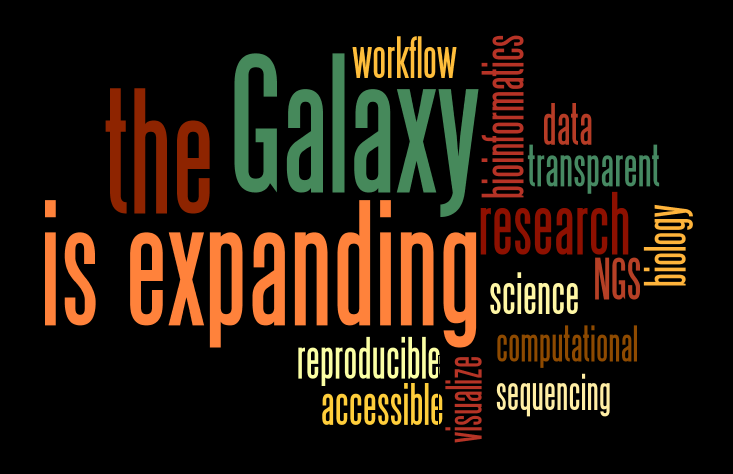
The Galaxy is expanding! Please help it grow.
- Postdoctoral Research Fellowship in Bioinformatics, University of Oslo
- BioInformaticien, HM.Clause, Business Unit du Groupe Limagrain, Maine et Loire, La Bohalle, France
- Scientific Research Programmer, Sethuraman Lab, California State University San Marcos. Develop model-based population genomics pipelines.
- Development Scientist (Bioinformatics), New England Biolabs, Ipswich, Massachusetts, United States.
Got a Galaxy-related opening? Send it to outreach@galaxyproject.org and we'll put it in the Galaxy News feed and include it in next month's update.
Public Galaxy Server News
There are over 90 publicly accessible Galaxy servers and six semi-public Galaxy services. Here's what happened with them in January.
Pathogen Portal RNA-Rocket seeking funding
Besides having a really cool logo, the RNA-Rocket Galaxy server supports RNA-Seq analysis for literally thousands of microbial reference genomes. If you use, have used, or are going to start using RNA-Rocket, then the folks behind RNA-Rocket ask that you "please consider writing a brief statement of support to pathporthelp@vbi.vt.edu."
New Public Galaxy Servers
GrAPPA
- GrAPPA (Graph Algorithms Pipeline for Pathway Analysis) is a Galaxy server for graph theoretical tools. It contains novel combinatorial methods integrated into a complete microarray analysis toolchain, from uploading raw high-throughput data to visualization of results.
Efforts to increase GrAPPA’s functionality are underway. Features now being incorporated include:
- a larger repertoire of pre-processing options, including Gaussian graphical models and an expanded set of correlation metrics such as mutual information
- more powerful post-processing capabilities, for example, software tools for Bayesian analysis
- links to related web-centric resources, e.g. GeneWeaver, so that users can seamlessly transfer data and results
Email Support is provided and suggestions and feedback from the user community are encouraged. You need to verify your email account before running jobs. GrAPPA is supported by the Langston Lab at the University of Tennessee
USMI Galaxy Demonstrator
The USMI Galaxy Demonstrator demonstrates integration of microbial domain Biological Resource Center (mBRC) catalogues into the bioinformatics data integration environment. The server supports anonymous access and account creation, and is supported by IRCCS AOU San Martino IST, Genoa, Italy. Please report issuses, request information, and send any suggestions, comments or criticisms to: Daniele Pierpaolo Colobraro or Paolo Romano
The server is still in a development phase, and a preprent is available:
- Colobraro DP, Romano P. (2017) USMI Galaxy Demonstrator (UGD): a collection of tools to integrate microorganisms information. PeerJ Preprints 5:e2766v1 DOI: 10.7287/peerj.preprints.2766v1
Cancer Computer upgrades
The Cancer Computer Galaxy service significntly upgraded it's compute capicity last month. If you are a cancer researcher then check it out.
Releases
17.01 Galaxy Release
The Galaxy Committers is pleased to announce the 17.01 release of Galaxy.
Highlights
Some highlights:
- Conda auto initialization is enabled by default
- New interface for user preferences
- Support for compressed FASTQ formats
Release Notes
For full details on all of the enhancements and fixes in this release, please see the full release notes.
Galaxy Docker Image 17.01
And, thanks to Björn Grüning, there is also now a Docker image for Galaxy 17.01 as well.
Planemo 0.37 - 0.38
Planemo is a set of command-line utilities to assist in building tools for the Galaxy project. This release included native support for building bioconductor tools and recipes, fixes for running Galaxy via docker-galaxy-stable and Import order linting fixes
See GitHub for details.
Pulsar 0.7.4
A Pulsar update was released in February. Pulsar is a Python server application that allows a Galaxy server to run jobs on remote systems (including Windows) without requiring a shared mounted file systems. Unlike traditional Galaxy job runners - input files, scripts, and config files may be transferred to the remote system, the job is executed, and the results are transferred back to the Galaxy server - eliminating the need for a shared file system.
This release contains Conda and flake8 updates.
galaxy-lib 17.1.2 - 17.5.5
galaxy-lib is a subset of the Galaxy core code base designed to be used as a library. This subset has minimal dependencies and should be Python 3 compatible. It's available from GitHub and PyPi.
The January and February releases included several fixes related to Conda and tool linting, improvements to mulled testing (thanks to @mvdbeek), and brought in the latest changes to Galaxy.
Starforge 0.3
Starforge is a collection of scripts that supports the building of components for Galaxy. Specifically, with Starforge you can:
- Build Galaxy Tool Shed dependencies
- Build Python Wheels (e.g. for the Galaxy Wheels Server)
- Rebuild Debian or Ubuntu source packages (for modifications)
These things will be built in Docker. Additionally, wheels can be built in QEMU/KVM virtualized systems.
Documentation can be found at starforge.readthedocs.org.
sequence_utils (New)
Galaxy's sequence utilities are a set of Python modules for reading, analyzing, and converting sequence formats.
And the rest ...
Other Galaxy packages that haven't had a release in the past four months can be found on GitHub.
ToolShed Contributions
Tool Shed contributions from January and February.
And please welcome Bérénice Batut of the University of Freiburg as the newest member of the IUC.
Other News
- Galaxy Video - RNAseq Pipeline as Example , from BioIT Core
- Galaxy Training Network materials are now automatically detected by ELIXIR TeSS
- And there are new training materials on metagenomics (featuring mothur and other useful Galaxy tools) by Saskia Hiltemann, and new Galaxy introduction training material reproducing a Cell paper using text & genomic region tools by Clemens Blank.
- WAVES adaptor to interact with Galaxy remote platform (WAVES = Web Application for Versatile and Easy online bioinformatic Services)
- When life sciences become data sciences: The University of Freiburg offers Europe-wide infrastructure and service in Bioinformatics

